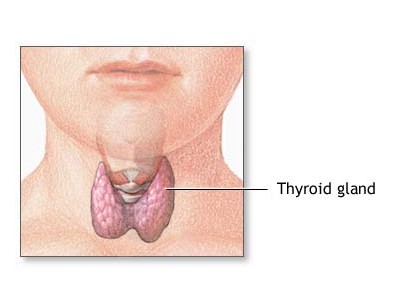Do you deal with Chronic Fatigue, Fibromyalgia, Depression?
by Les Cole, MD & Delene Cole, LMFT
Methylation is the most common biochemical reaction in your cells.
This is because methyl groups contain a single carbon atom (1 carbon & 3 hydrogens = a methyl group). Carbon is the essential building block of all organic molecules, of which 99% of your body is composed. So lengthening and shortening the molecules that make up your body by 1 carbon at a time is critically important to your health and life.
The methyl groups come from vitamin B-12 (which is what makes it so important) and are transferred to folate (vitamin B-9, which is what makes it so important) to then contribute the methyl group to all those important biochemical reactions in your cells that keep them and you healthy and alive.
A critical enzyme in this methylation pathway is called Methylenetetrahydrofolate reductase (MTHFR) and the Gene that codes for this enzyme has a high frequency of mutation that significantly reduces your ability to methylate if you have this genetic mutation. And you will see below that you have a high likelihood of having this mutation.
The Importance of MTHFR and It’s Mutations
Functions of Methylation:
Production of Neurotransmitters:
- Dopamine (motivation, pleasure)
- Norepinephrine (excitement)
- Epinephrine (Hormone)
- Serotonin (feeling at home, comfort)
- Melatonin (sleep, circadian rhythm)
- Acetylcholine (memory, concentration, clarity)
DNA Synthesis
- Repair DNA
- Prevent Cancer
- Prevent cells from dying
- Produce DNA
- Generate Stem Cells to replace dying cells
Cellular Command Central & Epigenetics – turns on & off all genes allowing your body the ability to respond to its internal & external environment and is stimulated by
- Hormones
- Food
- Toxins
- Other
- Detoxification – Methylation is a big part of Phase 2
- Amino Acid Metabolism
- Lipid Metabolism
- Choline production for Acetylcholine and important lipids like Myelin
- Clotting
- And More
MTHFR Mutations & Their Relevance
- There are over 6500 articles in PubMed about MTHFR
- MTHFR genes code for enzymes that take a methyl group (carbon & 3 hydrogens) from B12 (Major reason B12 so important – methyl donor) and sticks it on folate (reason folate so important), which then carries it on to do so many things in the body (see above list)
- There are 2 sets of genes and each gene has 2 copies – one from Mom & one from Dad
- C677T gene has 2 copies
- The normal gene has a C (cytosine) at the 677 position
- The abnormal (mutated, SNP) gene has a T (thymidine) at the 677 position
- The MTHFR Enzyme produced from the abnormal T gene has a decreased function (ability to “Methylate”) of about 40%
- Therefore, your ability to methylate is:
- 60% if you have C/T
- 20% if you have T/T
- A1298C gene has 2 copies
- The normal gene has a A (adenine) at the 1298 position
- The abnormal (mutated, SNP) gene has a C (cytosine) at the 1298 position
- The MTHFR Enzyme produced from the abnormal C gene has a decreased function (ability to “Methylate”) of about 10%
- Therefore, your ability to methylate is:
- 90% if you have A/C
- 80% if you have C/C
- If you have a combination of C/T (from the C677T) and A/C (from the A1298C) your ability to methylate is about 50%
- These percentages vary according to different researchers and this is a very simplified explanation
- Approximately 50% of people have 1 MTHFR genetic mutation
- C677T gene has 2 copies
Conditions Caused by MTHFR Mutations
- ADD/ADHD
- Addictive Behaviors
- Alcoholism
- Allergies
- Alzheimer’s
- Anxiety
- Atherosclerosis
- Autism
- Bipolar
- Cancer
- Chemical Sensitivity – diminished detox
- Chronic Fatigue Syndrome
- Chronic Viral Infection
- Cleft Palette
- Congenital Heart Defects
- Dementia
- Depression
- Diabetes
- Down’s Syndrome
- Endothelial Dysfunction
- Erectile Dysfunction
- Fibromyalgia
- Heart Disease
- Immune Deficiency – White blood cell function
- Infertility
- Insomnia
- Multiple Sclerosis – production of Choline for Myelin sheath
- Neural Tube Defects
- Neuropathy
- Parkinson’s
- Pulmonary Embolism
- Recurrent Miscarriage
- Schizophrenia
- Spina Bifida
- Thyroid Dysfunction
Drugs to avoid with MTHFR Mutation
- Antacids (depletes B12)
- Proton Pump Inhibitors (depletes B12)
- Cholestyramine (depletes B12 & folate)
- Cholestipol (depletes B12 & folate)
- Methotrexate (inhibits DHFR: Folate->THF)
- Nitrous Oxide (Inhibits MTR – Methionine Synthase)
- High Dose Niacin (depletes SAMe & inhibits pyridoxyl Kinase
- Theophylline (inhibits pyridoxyl Kinase = active B6)
- Cyclosporin (decreases renal function & increases Homocysteine)
- Metformin (depletes B12)
- Phenytoin (folate antagonist)
- Carbamazepine (folate antagonist)
- Oral Contraceptives (deplete B12 & folate)
- Antimalarials (inhibits DHFR)
- Trimethoprim (inhibits DHFR)
- Ethanol
- Bactrim (inhibits DHFR)
- Sulfasalazine (inhibits DHFR)
- Triamterine (inhibits DHFR)
To make an appointment to be evaluated for your MTHFR status or to determine the best course of treatment for you MTHFR status, call 727-202-6807.




0 Comments